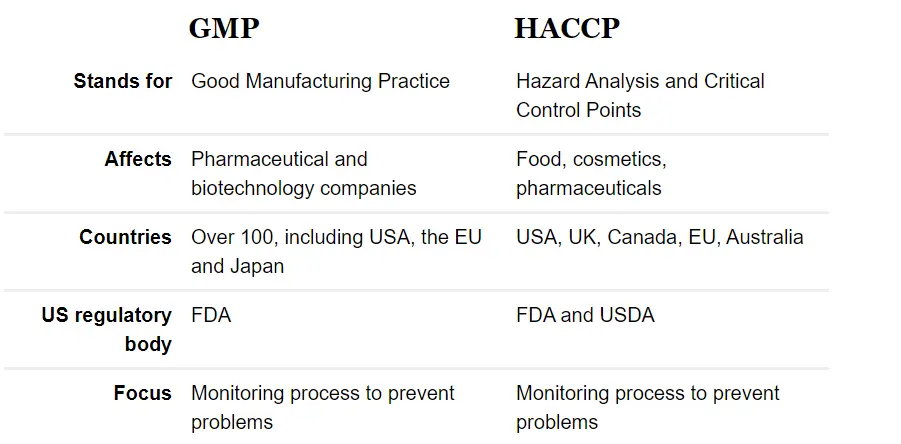Implementing HACCP: A Guide for Food Businesses

As a food business owner or manager, implementing an effective HACCP plan is critical to ensuring the safety of your products and compliance with regulations. HACCP, which stands for Hazard Analysis and Critical Control Points, is a systematic approach to food safety that focuses on prevention. By identifying potential hazards and establishing procedures to control […]
What are the 12 Steps of HACCP?

HACCP, which stands for Hazard Analysis and Critical Control Points, is a systematic approach to food safety that is used to identify and control potential hazards in food production and preparation. The 12 steps of HACCP are as follows:
What Are The Prerequisites For Developing A HACCP Plan?

Operations such as regular cleaning and sanitation, and even proper handwashing to avoid cross – contamination, are all part of a bigger food safety program. As the term suggests, prerequisite programs must be satisfied to establish more complex food safety plans such as the Hazard Analysis Critical Control Point (HACCP).
Establishing correct prerequisite programs builds a solid foundation for other food safety plans and shows a firm commitment to protecting public health. These operations can significantly minimize the pressure on implementing food safety plans as the hazards are already addressed in the earlier stages of the production process.
What are the GMPs to HACCP?

GMPs are an important element of a food safety plan and are often used in conjunction with HACCP HACCP is a food safety management system that is used to identify and prevent potential hazards in the food production process, while GMPs focus on the overall cleanliness and operation of the facility.
Is Online HACCP Training Better Than Classroom Training?

In general, it is important to choose a HACCP training course that is delivered by and accredited and qualified instructors and meets the requirements of your industry or regulatory agency. Whether you choose online or classroom training, make sure to do your research and choose a reputable provider.


